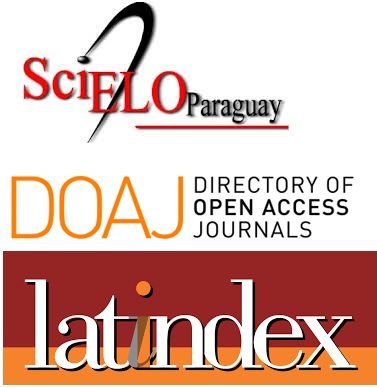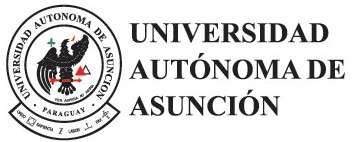Prejuicio y discriminación hacia la población indígena en Argentina: una mirada desde la psicología medioambiental
Palabras clave:
prejuicio, indígenas, identidad de lugar, sentido de lugar, memoria histórica.Resumen
A partir de la colonización española de América Latina a fines del siglo XV, los pueblos originarios han sido desplazados de sus tierras de manera extremadamente violenta. En la actualidad, las personas que pertenecen a las comunidades indígenas en Argentina son objeto de prejuicio y discriminación, debido a que son percibidos como una amenaza para la identidad social argentina. El objetivo del presente artículo es analizar teóricamente desde una perspectiva psicoambiental, aquellos factores que influyen en el desarrollo del prejuicio sutil y manifiesto hacia las poblaciones indígenas en Argentina. Dicho análisis se ha basado en la búsqueda bibliográfica de artículos indexados en revistas de alto impacto y se ha tenido en cuenta el sentido de lugar que las personas indígenas le otorgan a sus tierras y cómo se relaciona con el apego que estas personas tienen hacia su territorio. Además, se plantea que estos factores son fundamentales para la construcción de la identidad social de las personas indígenas. Por último, se propone que diseñar e implementar programas de intervención que incluyan una perspectiva psicoambiental basados en la memoria histórica y la promoción de la paz social puede ayudar a reducir el prejuicio y la discriminación hacia esta población.Descargas
Citas
Acemoglu, D. y Robinson, J., A. (2012). Por qué fracasan los países: los origenes del poder, la prosperidad y la pobreza. Ed. Deusto.
Adorno, T., Frenkel-Brunswik, E., Levinson,D., & Sanford, R. (1950). The Authoritarian Personality. New York: Harper.
Aguirre, C. S. (2019). Comunidad y territorio a través de testimonios orales de mujeres mapuche: Villa La Angostura, Neuquén, 1980-2018. Revista TEFROS, 2(18), 110-140. http://www2.hum.unrc.edu.ar/ojs/index.php/tefros/article/view/853
Allport, G. W. (1954). The nature of prejudice. Reading, Addison-Wesley.
Amnistía Internacional (2022). Pueblos Indígenas. https://www.amnesty.org/es/what-we-do/indigenous-peoples/
Alvarez, B. C. (2016). La conquista y colonización española de América. Historia Digital, 16(28), 103-149.
Barreiro, A., Castorina, J., & van Alphen, F. (2017). Conflicting Narratives about the Argentinean ‘Conquest of the Desert’: Social Representations, Cognitive Polyphasia, and Nothingness. In M. Carretero, M. Grever & S. Berger (Eds.), Palgrave Handbook of Research in Historical Culture and Education (pp. 373-389). Palgrave Macmillan.
Barreiro, A., Ungaretti, J., & Etchezahar, E. (2019). Representaciones sociales y prejuicio hacia los indígenas en Argentina. Revista de Psicología (PUCP), 37(2), 529-558. http://dx.doi.org/10.18800/psico.201902.007
Barreiro, A., Ungaretti, J., Etchezahar, E., & Wainryb, C. (2020). “They Are Not Truly Indigenous People”: Social Representations and Prejudice against Indigenous People in Argentina. Papers on Social Representations, 29(1), 6-1. https://psr.iscte-iul.pt/index.php/PSR/article/view/539
Bengoa, J. (2011). Los Mapuches: historia, cultura y conflicto. Cahiers des Amériques latines, 68, 89-107. https://doi.org/10.4000/cal.118
Bohórquez, A. D. P. L. (2021). Educación para la paz y educación trasnacional en América Latina: Derechos humanos, memoria y convivencia. Revista construyendo paz latinoamericana, 11, 83-95. https://doi.org/10.35600/25008870.2021.11.0185
Breakwell, G. M. (1986). Coping with threatened identities. Psychology Press.
Breakwell, G. M. (1992). Processes of self-evaluation: Efficacy and estrangement. In Social psychology of identity and the self (pp. 35-55). Surrey University Press in association with Academic Press.
Breakwell, G. M., Fino, E., & Jaspal, R. (2021). The identity resilience index: Development and validation in two UK samples. Identity, preprint, 1-17. https://doi.org/10.1080/15283488.2021.1957895
Briñol, P., Falces, C. y Becerra, A. (2007). Actitudes. En F. Morales, M. Moya, E. Gaviria, e I. Cuadrado (Comps.) Psicología Social (pp. 457-490). Mc Graw Hill.
Briones, C., & Carrasco, M. (2001). (Neo) indigenismo estatal y producciones indígenas en Argentina (1985-1999). Anuario antropológico, 26(1), 147-167.
Budruk, M., Thomas, H., & Tyrrell, T. (2009). . Society and Natural Resources, 22(9), 824-839. https://doi.org/10.1080/08941920802628515
Butto, A. R. (2017). Rastros de violencia en las fotografías de la Conquista del Desierto (Argentina, 1879-1883).
Canter, D. (1977). The psychology of place. St Martin's Press.
Carrasco, M. y Briones, C. (1996). La tierra que nos quitaron. Ed. IWGIA.
Carretero, M. & Kriger, M. (2011). Historical representations and conflicts about indigenous people as national identities. Culture & Psychology, 17(2), 177-195. https://doi.org/10.1177/1354067X11398311
Charleston, S. (2009). The English football ground as a representation of home. Journal of Environmental Psychology, 29(1), 144-150.
Corporación Nacional de Desarrollo Indígena (2019). Diccionario de la lengua Mapuche. Ministerio de Desarrollo Social y Familia. http://www.conadi.gob.cl/noticias/kimun-mongen-che-el-diccionario-chezungun-castellano-que-fue-presentado-oficialmente-por-conadi-en-o
Deaux, K. y Martin, D. (2003). Interpersonal networks and social categories: Specifying levels of context in identity processes. Social Psychology Quarterly, 66(2), 101-117. https://doi.org/10.2307/1519842
Delrio, W. (2002). Indios amigos, salvajes o argentinos. Procesos de construcción de categorías sociales en la incorporación de los pueblos originarios al Estado-Nación (1870-1885). Funcionarios, diplomáticos, guerreros. Miradas hacia el otro en Pampa y Patagonia.
Del Río, W. (2005). Memorias de la expropiación. Sometimiento e incorporación indígena en laPatagonia (1872-1943) [Memories of expropriation. Indigenous submission and incorporation in Patagonia (1872-1943)]. Universidad de Quilmes.
Di Masso, A., Williams, D. R., Raymond, C. M., Buchecker, M., Degenhardt, B., Devine-Wright, P., ... & Von Wirth, T. (2019). Between fixities and flows: Navigating place attachments in an increasingly mobile world. Journal of Environmental Psychology, 61, 125-133. https://doi.org/10.1016/j.jenvp.2019.01.006
Dovidio, J. F., Hewstone, M., Glick, P., & Esses, V. M. (2010). Prejudice, stereotyping, and discrimination: Theoretical and empirical overview. Handbook of prejudice, stereotyping, and discrimination, 3-28.
Etchezahar, E. D. (2014). La construcción social del género desde la perspectiva de la Teoría de la Identidad Social. Ciencia, Docencia y Tecnología, 49(25), 128-142. http://hdl.handle.net/11336/45010
Fiske, S. T. (2018). Stereotype content: Warmth and competence endure. Current directions in psychological science, 27(2), 67-73.
Gigena, A. I. (2010). Reivindicaciones y luchas territoriales en Argentina: entre la identificación indígena y la fragmentación intra-étnica. Anuario Colombiano de Historia Social y de la Cultura, 37(2), 195-218.
https://revistas.unal.edu.co/index.php/achsc/article/view/19188
Glick, P., & Fiske, S. T. (2001). Ambivalent stereotypes as legitimizing ideologies: Differentiating paternalistic and envious prejudice. In J. T. Jost & B. Major (Eds.), The psychology of legitimacy: Emerging perspectives on ideology, justice, and intergroup relations (pp. 278–306). Cambridge University Press.
Gordillo, G., y Hirsch, S. (2010). Movilizaciones indígenas e identidades en disputa en la Argentina.
International Work Group for Indigenous Affairs (2020). Informe por regiones y países: Argentina. El mundo indígena. Editorial, IWGIA.
https://www.iwgia.org/es/recursos/mundo-indigena.html
Gustafson, P. (2001). Meanings of place: Everyday experience and theoretical conceptualizations. Journal of environmental psychology, 21(1), 5-16.
https://doi.org/10.1006/jevp.2000.0185
Instituto Nacional contra la Discriminación, la Xenofóbia y el Racismo (2020). Informe técnico del Observatorio de la Discriminación. Buenos Aires, Argentina: INADI. https://www.argentina.gob.ar/noticias/informe-del-observatorio-de-la-discriminacion-sobre-el-conflicto-en-villa-mascardi
Instituto Nacional de Asuntos Indígenas (2021). Distribución geográfica de las Comunidades pertenecientes a Pueblos Originarios registradas en el ambito nacional y/o provincial y/o relevadas. Buenos Aires, Argentina: INAI.
https://www.argentina.gob.ar/derechoshumanos/inai/mapa
Instituto Nacional de Estadística y Censos (2021). Proyecciones Nacionales. https://www.indec.gob.ar/indec/web/Nivel4-Tema-2-24-84
Jelin, E. (2002). Historia y memoria social. Los trabajos de la memoria, 63-78.
Jorgensen, B. S., & Stedman, R. C. (2001). Sense of place as an attitude: Lakeshore owners attitudes toward their properties. Journal of environmental psychology, 21(3), 233-248. https://doi.org/10.1006/jevp.2001.0226
Kleit, R. G., & Manzo, L. C. (2006). To move or not to move: Relationships to place and relocation choices in HOPE VI. Housing Policy Debate, 17(2), 271-308. https://doi.org/10.1080/10511482.2006.9521571
Kyle, G., Graefe, A., & Manning, R. (2005). Testing the dimensionality of place attachment in recreational settings. Environment and behavior, 37(2), 153-177.
https://doi.org/10.1177/0013916504269654
Kropff, L. (2005). Activismo mapuche en Argentina: trayectoria histórica y nuevas propuestas. Pueblos indígenas, estado y democracia.
Lewicka, M. (2010). What makes neighborhood different from home and city? Effects of place scale on place attachment. Journal of environmental psychology, 30(1), 35-51. https://doi.org/10.1016/j.jenvp.2009.05.004
Manzo, L. C., Kleit, R. G., & Couch, D. (2008). “Moving three times is like having your house on fire once”: The experience of place and impending displacement among public housing residents. Urban studies, 45(9), 1855-1878.
https://doi.org/10.1177/0042098008093381
Mases, E. H. (2010). Estado y cuestión indígena: el destino final de los indios sometidos en el sur del territorio (1878-1930). Prometeo Libros.
Ortiz Guitart, A. (2006). Regeneración urbana, espacio público y sentido de lugar. Un caso de estudio en la ciudad de México. Provincia, (15), 41-63.
https://www.redalyc.org/pdf/555/55501503.pdf
Palladino, L. (2014). Esencialismo indígena y autenticidad en disputa. Análisis de la tramitación de la personeria jurídica en la reivindicación de la comunidad Comechingón del pueblo de la Toma (2008-2009). Intersticios de la política y la cultura. Intervenciones Latinoamericanas, 3(5), 69-91.
Pettigrew, T. F., & Meertens, R. W. (1995). Subtle and blatant prejudice in Western Europe. European journal of social psychology, 25(1), 57-75.
https://doi.org/10.1002/ejsp.2420250106
Proshansky, H.M. (1978). The city and self-identity. Environment and Behavior, 10 (2), 147-169. https://doi.org/10.1177/0013916578102002
Proshansky, H. M., Fabian, A. K., & Kaminoff, R. (1983). Place-identity: Physical world socialization of the self. Journal of environmental psychology, 3. 57-83. https://doi.org/10.1016/S0272-4944(83)80021-8
Rabbia, H. H. (2020). Otredad, diversidad religiosa y prejuicios en las interacciones cotidianas de evangélicos/as de Córdoba, Argentina. Sociologias, 22, 36-63. https://doi.org/10.1590/15174522-98898
Rule, N. O., Tskhay, K. O., Brambilla, M., Riva, P., Andrzejewski, S. A., & Krendl, A. C. (2015). The relationship between anti-gay prejudice and the categorization of sexual orientation. Personality and Individual Differences, 77, 74-80.
https://doi.org/10.1016/j.paid.2014.12.038
Scannell, L., & Gifford, R. (2010). Defining place attachment: A tripartite organizing framework. Journal of environmental psychology, 30(1), 1-10.
https://doi.org/10.1016/j.jenvp.2009.09.006
Tajfel, H. y Turner, J. C. (1979). An integrative theory of intergroup conflict. En W. G. Austin y S. Worchel (Eds). The social psychology of intergroup relations (pp. 33-47). Brooks/Cole.
Trujillo, H. M., Moyano, M., León, C., Valenzuela, C., & González-Cabrera, J. (2005). El radicalismo islamista en las sociedades occidentales: prejuicio, identidad social y legitimación del terrorismo. Psicología conductual, 13(2), 311-328.
Ungaretti, J., Etchezahar, E., & Simkin, H. (2012). El estudio del prejuicio desde una perspectiva psicológica: cuatro períodos histórico conceptuales para la comprensión del fenómeno. Calidad de vida y salud, 8, 13-30.
Uribe Castro, H., & Ramírez Arcila, A. F. (2014). Sentidos de lugar y movimiento social: indígenas de Toribío y defensa de su territorio en Colombia. Latinoamérica. Revista de Estudios Latinoamericanos, (58), 9-31.
Valera, S., & Pol, E. (1994). El concepto de identidad social urbana: una aproximación entre la psicología social y la psicología ambiental. Anuario de psicología, 62, 5-24.
Williams, D. R. (2014). Making sense of ‘place’: Reflections on pluralism and positionality in place research. Landscape and Urban Planning, 131, 74-82.
https://doi.org/10.1016/j.landurbplan.2014.08.002
Zubieta, E., Beramendi, M., Sosa, F., & Torres, J. A. (2011). Sexismo ambivalente, estereotipos y valores en el ámbito militar. Revista de Psicología (PUCP), 29(1), 101-130. http://www.scielo.org.pe/scielo.php?script=sci_arttext&pid=S02549242011000100004&lng=es&nrm=iso
Descargas
Publicado
Cómo citar
Número
Sección
Licencia
La responsabilidad del contenido de los artículos publicados es de competencia exclusiva de los firmantes del artículo y de ninguna manera será atribuible a la Editora o al Comité Editorial de la revista.
Los autores de los artículos son los responsables de la obtención del permiso correspondiente para incluir en su artículo cualquier material publicado en otro lugar. La revista declina cualquier responsabilidad que se derive de la posible falta de permiso en la reproducción de cualquier material.
La Revista se reserva los derechos de autor y la reproducción de los documentos en otros medios impresos y/o electrónicos.
Asimismo en concordancia con la promoción del Acceso Abierto, la revista permite que los lectores lean, descarguen, copien, distribuyan, impriman, busquen o se vinculen a los textos completos de sus artículos y permiten que los lectores los utilicen para cualquier otro propósito legal, sujetos a la licencia CC que defina la Revista



